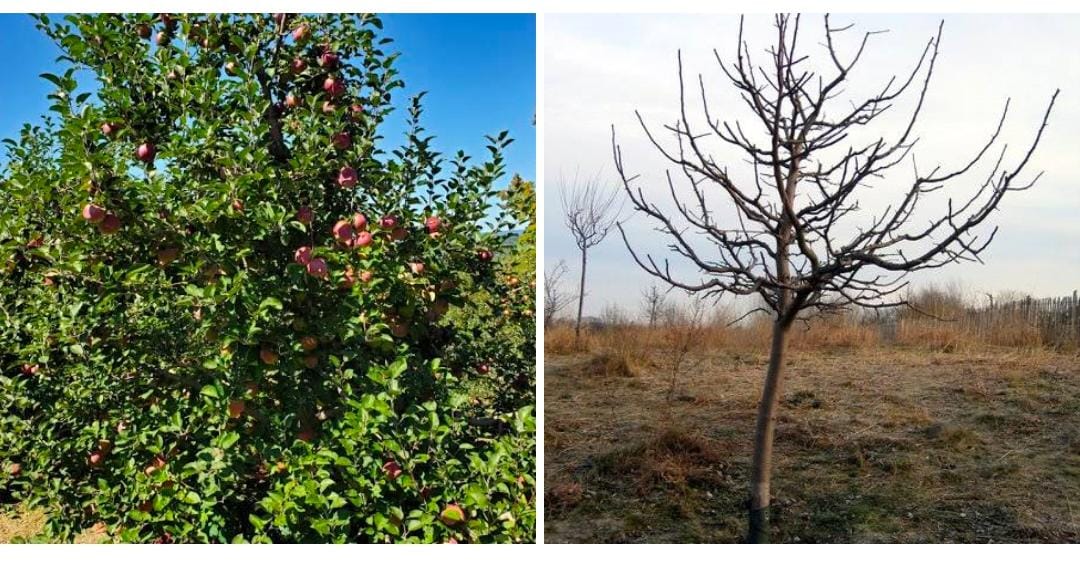
Environmental stresses pose significant threats to global food security and have detrimental effects on crop production worldwide, particularly impacting fruit cultivation. Abiotic stresses, such as rising temperatures, reduced precipitation, heat waves, and cold temperatures, disrupt the timing of flowering, fruit set, and harvesting, leading to decreased productivity and compromised fruit quality, especially in arid and semi-arid regions. Changes in environmental factors like temperature variations, drought, freezing, elevated CO2 levels, and humidity fluctuations directly and indirectly affect the sustainable production of diverse fruit orchards.
Chilling Hour Conundrum
Each fruit tree species has specific requirements for the necessary chilling hours to bear fruit. Some trees need only 100 cool hours while some need 1800 hours. Apples stand out among fruit trees due to their varying chilling hour needs. Different apple varieties necessitate anywhere between 100 to 1,700 chilling hours for optimal fruit production.
A Shift in Orchard Realities
Zahir Shah, 68 years old, stands in his orchard reminiscing. In 1982, there were over 800 trees here, bearing varieties like Red Delicious, Royal Gala, Kala Kola, Golden Delicious, and Golden Super, which were renowned. These apples weren’t just sold in Pakistan; they were exported, bringing in considerable revenue. He recalls snowy mountaintops in December and January, but now, the warmer weather isn’t ideal for apple growth. As a result, they’ve shifted to cultivating peaches and plum trees. The orchard now holds fewer apple trees, lacking the distinctive taste they once had.
Regional Implications
Agricultural officer Sajid Khan explains that each fruit tree species has specific chilling hour requirements for fruit production. Insufficient chill hours lead to reduced flowering, increased vegetative growth, decreased productivity, and adversely affect fruit quality. Due to rising temperatures, the lower Swat region of Khyber faces unsuitable conditions for apple cultivation, lacking apple orchards. Only upper Swat areas like Kalam maintain suitability for apple orchards.
The Climate Change Forecast
The study by Climate expert Dr Shaukat Ali published in the American Journal (International Journal of Climatology) shows that the country’s average temperature could rise between 2.6°C and 5.1°C by the end of the century. Sub-regions across Pakistan are expected to experience notable warming, with Khyber Pakhtunkhwa (KP) projecting higher temperature increases compared to the national average. The northern region, including top cities, is particularly anticipated to exhibit the most significant temperature rise in the future.
Expert Solutions
Dr Ghilam Nabi from the Department of Horticulture at the University of Agriculture acknowledges the increasing warmth in weather each year, posing a challenge for apple production. However, he suggests addressing this issue through two techniques: using hydrogen cyanamide (Dormex) and cultivating two apple varieties, namely Anna and Ein Shemer.
Over the past three decades, Pakistan has experienced a significant rise in the frequency and severity of extreme hydrological and meteorological events, such as droughts, extreme temperatures, floods, and storms. The International Disasters Database (EM-DAT) indicates an increase from 16 events between 1926 and 1990 to 105 events between 1991 and 2022. Additionally, the annual average temperature in Pakistan surged by 1.68 degrees Celsius between 1901 and 2021, surpassing the global average temperature increase of 1.1 degrees Celsius.
Amidst these changing realities, the future of fruit cultivation hangs in the balance, demanding innovative solutions and resilient approaches to safeguard global food security in the face of climate uncertainty.


Leave a Reply